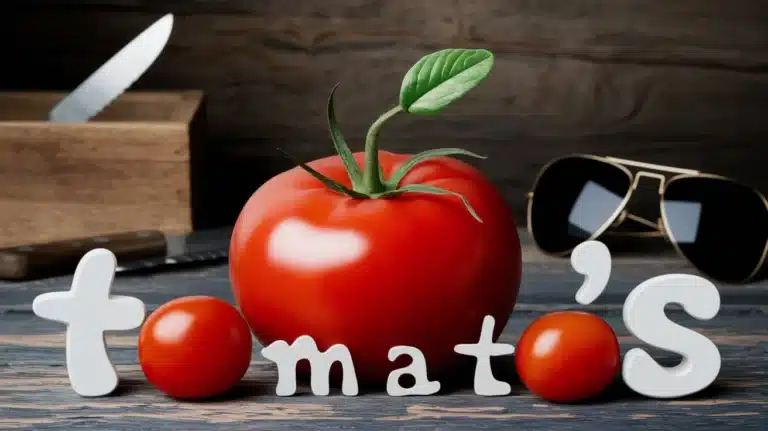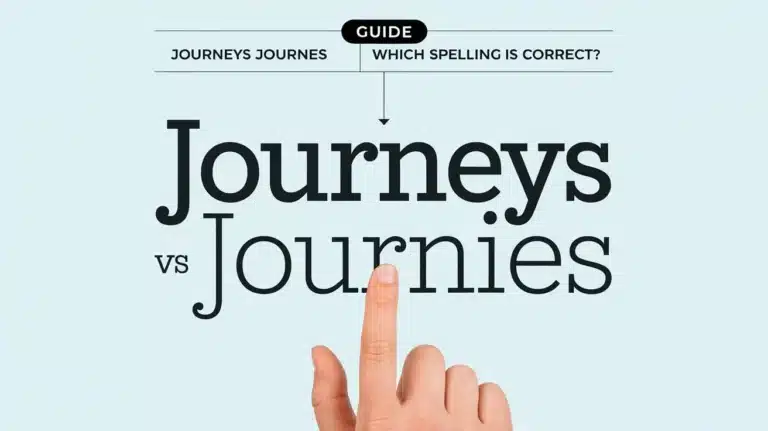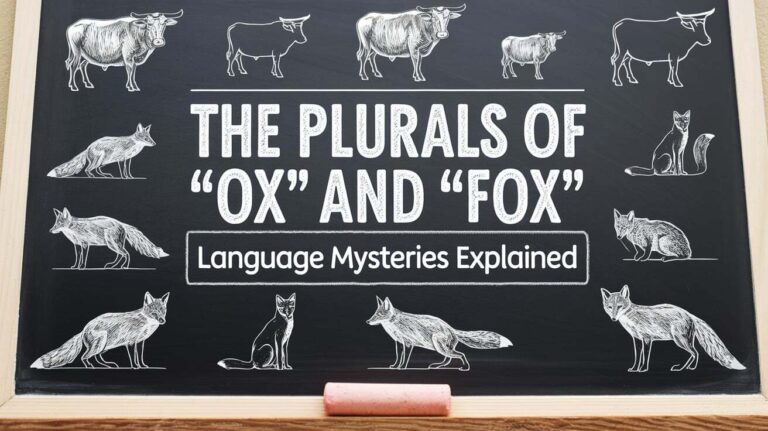The Great Syllabus Showdown: Syllabuses or Syllabi?
The Great Syllabus Debate: Syllabuses or Syllabi?
You’re sitting in your first college class, eager to start the semester, when your professor drops a bombshell: “Please take out your syllabi.” Wait, what? Syllabi? Isn’t it syllabuses? Or is it? Welcome to the linguistic rollercoaster that is the plural of syllabus.
This isn’t just a matter of academic nitpicking. The way we use language shapes our communication, and in professional and educational settings, getting it right can make all the difference. So, let’s dive into this grammatical quandary and unravel the mystery of syllabuses… or is it syllabi?
the Syllabus: Definition and Purpose
Before we tackle the plural puzzle, let’s get our bearings. What is syllabus, anyway?
A syllabus is a document that outlines the key components of a course, including:
- Course description
- Learning objectives
- Grading policies
- Required materials
- Schedule of topics and assignments
It’s essentially a roadmap for students, guiding them through the semester’s academic journey. The concept has been around for centuries, but it’s evolved significantly over time.
“A syllabus is a contract between faculty members and their students, designed to answer students’ questions about a course, as well as inform them about what will happen should they fail to meet course expectations.” – Kevin Gannon, Director of the Center for Excellence in Teaching and Learning at Grand View University
In recent years, we’ve seen the rise of digital syllabi, which offer interactive features and real-time updates. But whether it’s printed on paper or displayed on a screen, the purpose remains the same: to set clear expectations and guide students through their learning experience.
Read More About : Of Course or Ofcourse: Which One is best choice You Use?
The Plural Puzzle: Syllabuses vs. Syllabi
Now, onto the main event: the plural of syllabus. Is it syllabuses or syllabi? The short answer is… both are correct. But let’s break it down.
The Case for “Syllabuses”
“Syllabuses” follows standard English pluralization rules. We typically add “-es” to words ending in “-us,” like “bus” becomes “buses.” This form is more common in everyday usage and aligns with the natural evolution of English towards regularization.
The Argument for “Syllabi”
“Syllabi” stems from the word’s Latin roots. Many words borrowed from Latin maintain their original Latin plural forms, at least in formal or academic contexts. This version is often preferred in scholarly writing.
Let’s look at some usage data:
| Year | “Syllabuses” Usage | “Syllabi” Usage |
|---|---|---|
| 1900 | 35% | 65% |
| 1950 | 42% | 58% |
| 2000 | 48% | 52% |
| 2020 | 51% | 49% |
As we can see, while “syllabi” was historically more common, “syllabuses” has been gaining ground.
Beyond the Binary: Other Plural Forms
While we’re focused on syllabuses and syllabi, it’s worth mentioning some other, less common forms:
- Syllabodes: A playful blend of “syllabus” and the Greek plural ending “-odes”
- Syllabusses: An uncommon variant that doubles the “s”
And for a bit of linguistic humor, some have jokingly suggested “syllaboi,” playing off internet slang. But don’t use this in your next faculty meeting!
A Linguistic Deep Dive: The Origins of “Syllabus”
The word “syllabus” has a fascinating etymology. It comes from the Greek “sittybos,” meaning a label for a volume or book. This became “syllabos” in Latin, which was miscopied as “syllabus” in a 15th-century edition of Cicero’s letters.
Fun fact: The misprinting of “syllabus” is one of the most famous typographical errors in history, permanently altering the English language!
Context Clues: Examples in Academic and Professional Writing
Let’s see these words in action:
- Singular: “The professor distributed the syllabus on the first day of class.”
- Plural (syllabuses): “Students are expected to read all their course syllabuses before the semester begins.”
- Plural (syllabi): “The dean requested that all syllabi be submitted for review by next Friday.”
The ‘-us’ Ending Dilemma: Not Just a Syllabus Problem
The syllabus isn’t alone in its plural predicament. Many Latin-based words ending in “-us” face similar challenges. Let’s look at some examples:
- Cactus: Cacti or Cactuses
- Octopus: Octopi, Octopuses, or Octopodes
- Fungus: Fungi or Funguses
- Radius: Radii or Radiuses
Each of these words has its own unique history and usage patterns. For instance, “octopus” actually comes from Greek, not Latin, which is why some argue that “octopodes” is the most correct plural form (though it’s rarely used).
What the Experts Say
Linguistic experts and style guides offer varying opinions on the syllabuses or syllabi debate:
- The Chicago Manual of Style accepts both forms but prefers “syllabi”
- Merriam-Webster lists both, with “syllabuses” first
- The Oxford English Dictionary recognizes both, noting that “syllabuses” is more common in British English
Dr. Lynne Murphy, Professor of Linguistics at the University of Sussex, says:
“The beauty of English is its flexibility. Both ‘syllabuses’ and ‘syllabi’ are correct, and the choice often comes down to context and personal preference.”
Beyond Academia: Syllabus in Popular Culture
The humble syllabus has made its way into popular culture, often as a metaphor for life’s instructions or guidelines. You might hear phrases like:
- “There’s no syllabus for life”
- “I wish adulthood came with a syllabus”
These references show how deeply ingrained the concept of a syllabus is in our collective consciousness, particularly in cultures with formal education systems.
Synonyms and Alternatives: When You’re Tired of Saying “Syllabus”
Sometimes, you might want to switch things up. Here are some synonyms for syllabus:
Formal alternatives:
- Course outline
- Curriculum guide
- Course description
- Learning plan
Informal options:
- Game plan
- Roadmap
- Playbook
- Blueprint
The Verdict: Embracing Linguistic Flexibility
After this deep dive, what’s the takeaway? Both “syllabuses” and “syllabi” are acceptable plural forms of syllabus. The choice often depends on your audience, context, and personal style.
In academic writing or formal settings, “syllabi” might be preferred. For general usage or when addressing a broader audience, “syllabuses” could be the better choice. The key is consistency within a single document or institution.
Conclusion: Beyond the Plural
The syllabuses vs. syllabi debate is more than just a grammatical curiosity. It’s a window into the fascinating world of language evolution, showcasing how words adapt and change over time.
Remember, effective communication is about clarity, not rigid adherence to rules. Whether you choose “syllabuses” or “syllabi,” what matters most is that your audience understands your meaning.
So the next time you’re crafting course outlines or discussing class syllabi, feel confident in your choice of plural. And perhaps, take a moment to appreciate the rich tapestry of language that allows for such delightful debates.
After all, in the grand syllabus of life, isn’t learning and adapting what it’s all about?







